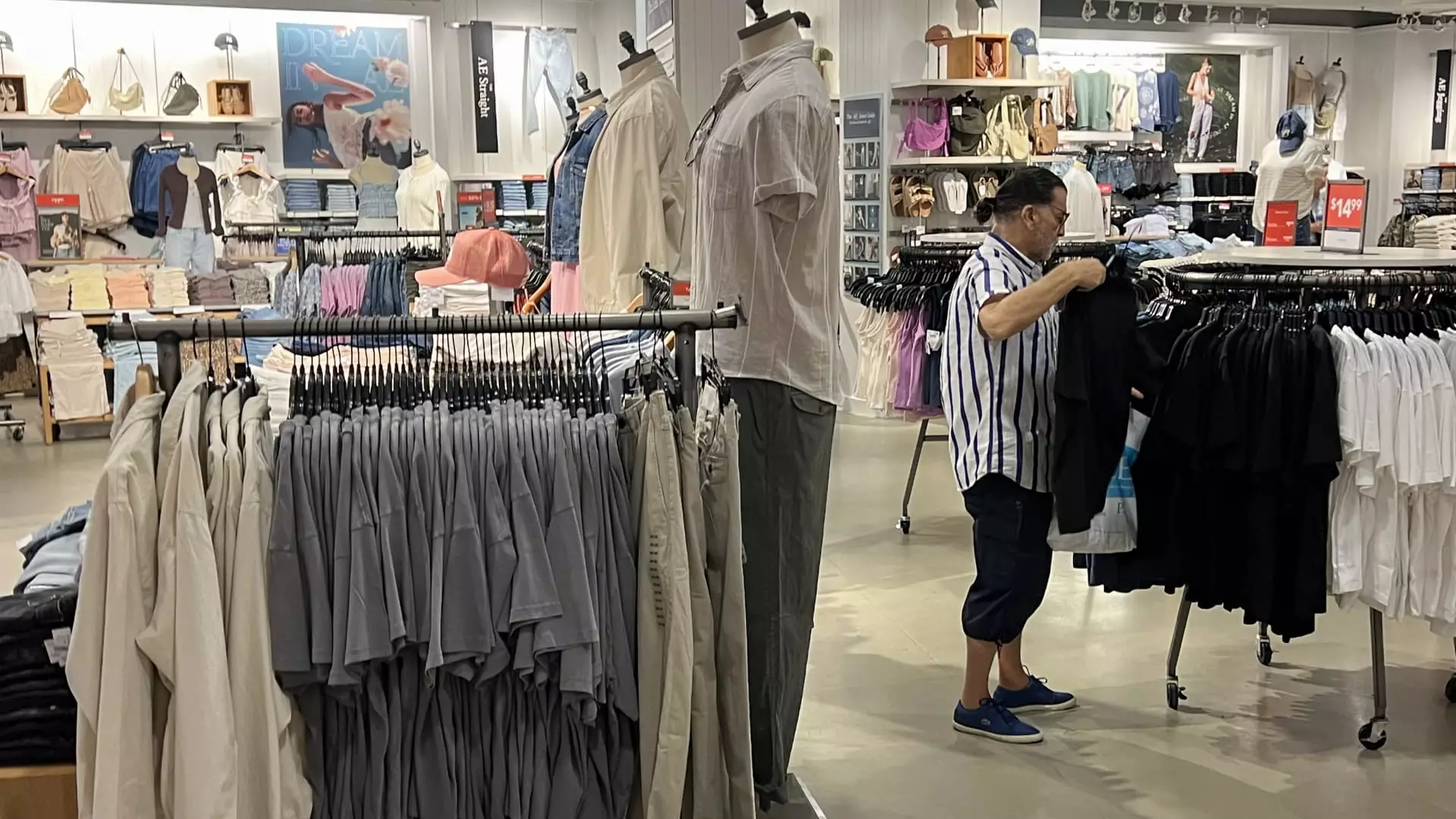Recent shifts in consumer behavior reveal an unmistakable trend: Americans are bracing themselves for a different kind of economic landscape, one defined not by indulgence but by austerity. After a surge in panic buying, triggered by unexpected economic pressures, a majority are now prepared to tighten their belts. This change, notwithstanding its necessity in troubled times, reflects deeper currents of insecurity and uncertainty in consumer sentiment. The societal embrace of less isn’t merely about saving money; it signifies an acute awareness of our economic realities and a palpable fear of future instability.
Interestingly, even figures like former President Donald Trump have weighed in, suggesting a drastic reduction in consumer goods, famously stating, “Americans don’t need to have 250 pencils; they can have five.” This attitude may seem extreme, yet it underscores a broader cultural shift toward minimalism in times of economic strain. Such statements resonate with a society that is grappling with rising costs and shrinking disposable income. Ultimately, the message is clear: there’s an emerging acceptance that sacrifice may be necessary for long-term stability.
The Impact of Tariffs and Inflation
The economic landscape is further complicated by the ramifications of tariff policies, which have sown distrust in the fabric of consumer behavior. While the U.S. has so far evaded recession, consumer spending — traditionally regarded as the engine of economic growth — is becoming increasingly cautious. According to a study by Intuit Credit Karma, a staggering 83% of respondents noted that if their financial circumstances were to worsen, they would ponder reducing non-essential purchases. The sentiment captured in these figures reveals the anxiety that looms over many households.
Ted Rossman of Bankrate succinctly highlighted, “It sort of feels like something has to give.” Indeed, as inflation continues to press on wallets, the notion of unchecked spending becomes a relic of happier times. The fluctuations in economic health, especially amid rising interest rates, have given rise to a culture of thrift. As economic indicators show mixed signals — such as unemployment rates and spending trends that appear more favorable yet sluggish — consumer confidence remains shaky, teetering on the edge of alarm.
The Psychological Toll of Economic Woes
Beyond mere statistics, the psychological burden of this economic climate cannot be ignored. The Conference Board’s expectations index has plunged to its lowest levels in over a decade, reflecting a growing anxiety amongst the populace. As families increasingly reckon with record credit card debts and the resumption of federal student loan repayments, it’s evident that financial preparedness is becoming paramount. Nearly half of Americans are fretting about their financial readiness on a daily basis, illustrating how deeply ingrained these concerns have become.
Moreover, the impact of rising tariffs on consumer behavior cannot be underestimated. As pundits like Jack Kleinhenz of the National Retail Federation argue, the uncertainty surrounding these economic policies incites caution among consumers. With each announcement of a potential tariff or rate hike, the willingness to spend diminishes, marking a significant shift in how Americans perceive their financial future.
A Future Defined by Minimalism
What emerges from this narrative is a portrait of a nation undergoing a transformative period. The cultural embrace of minimalism is not just a frugal trend; it’s a reflection of a strategic redirection necessitated by economic uncertainty. The notion that Americans can thrive with less opens up valuable questions about consumption habits and societal values. Should the focus really be on acquiring more, or is the path to liberation found in living with less?
The shift towards austerity, while born of necessity, can illuminate the way forward. It can compel a rethink of consumer culture that prioritizes wellbeing over material accumulation. As society reconciles its relationship with consumption, a new paradigm may emerge — one where fewer possessions may lead to a greater quality of life. The burden of austerity, while initially painful, has the potential to reshape our values and foster a renewed sense of community resilience.

